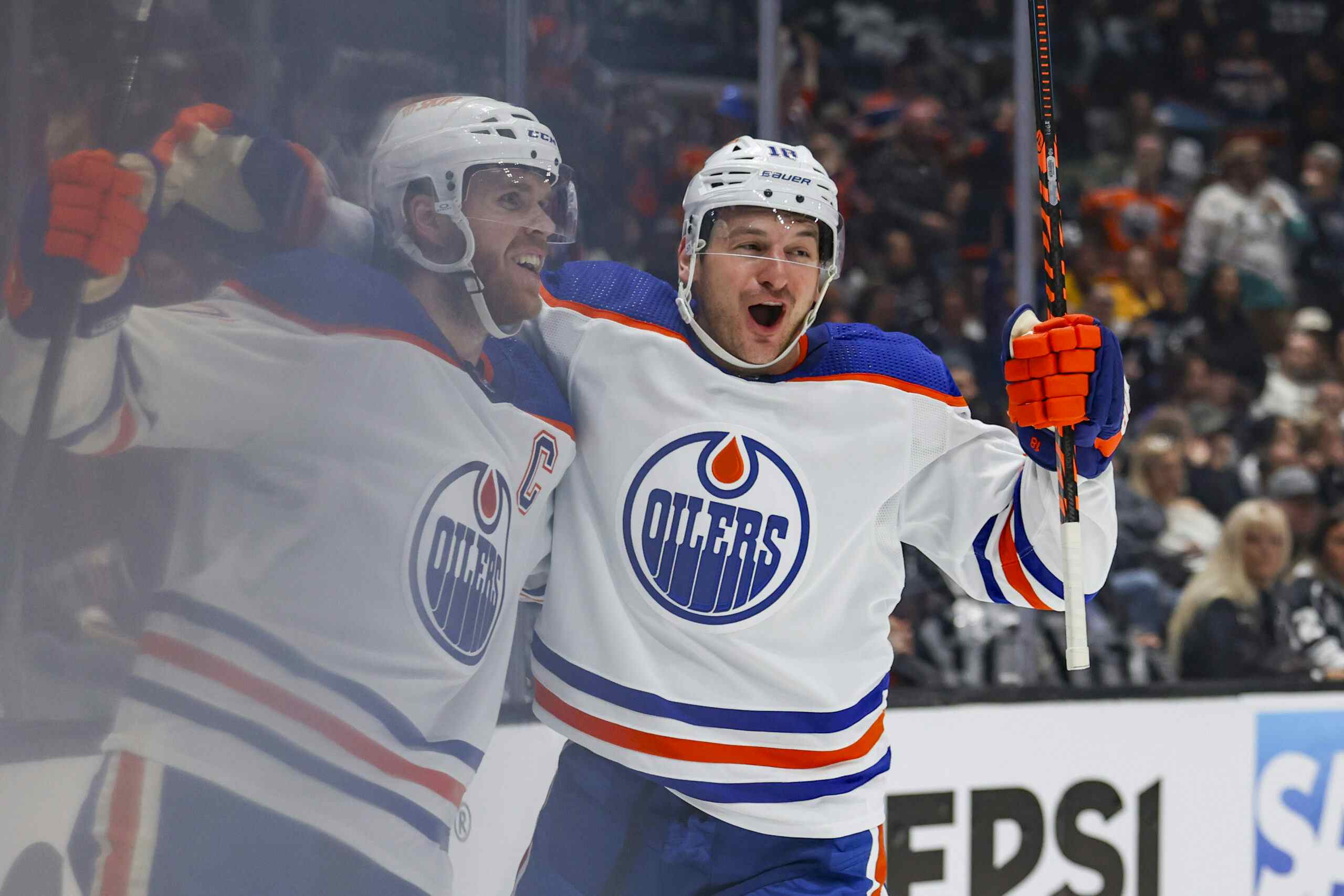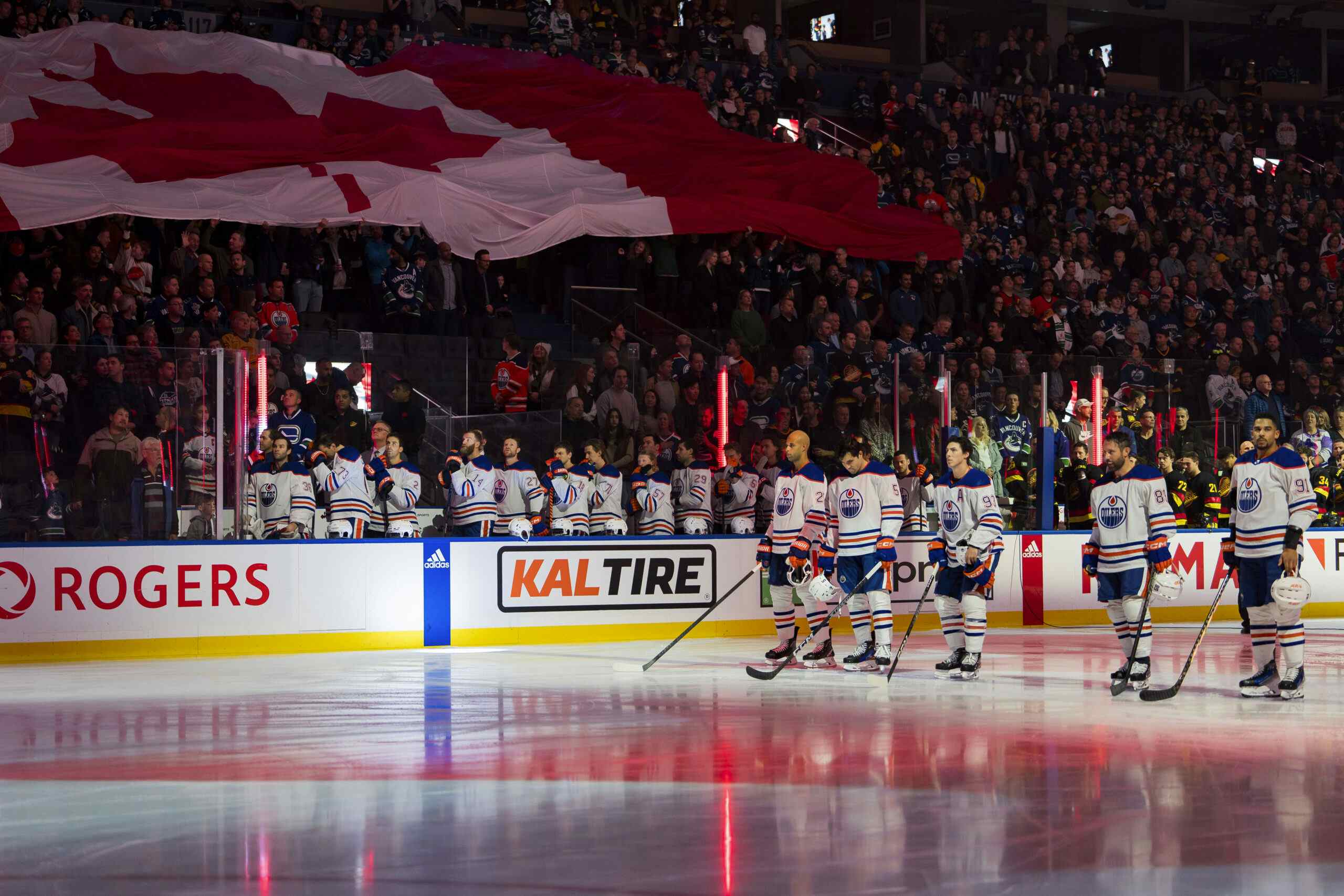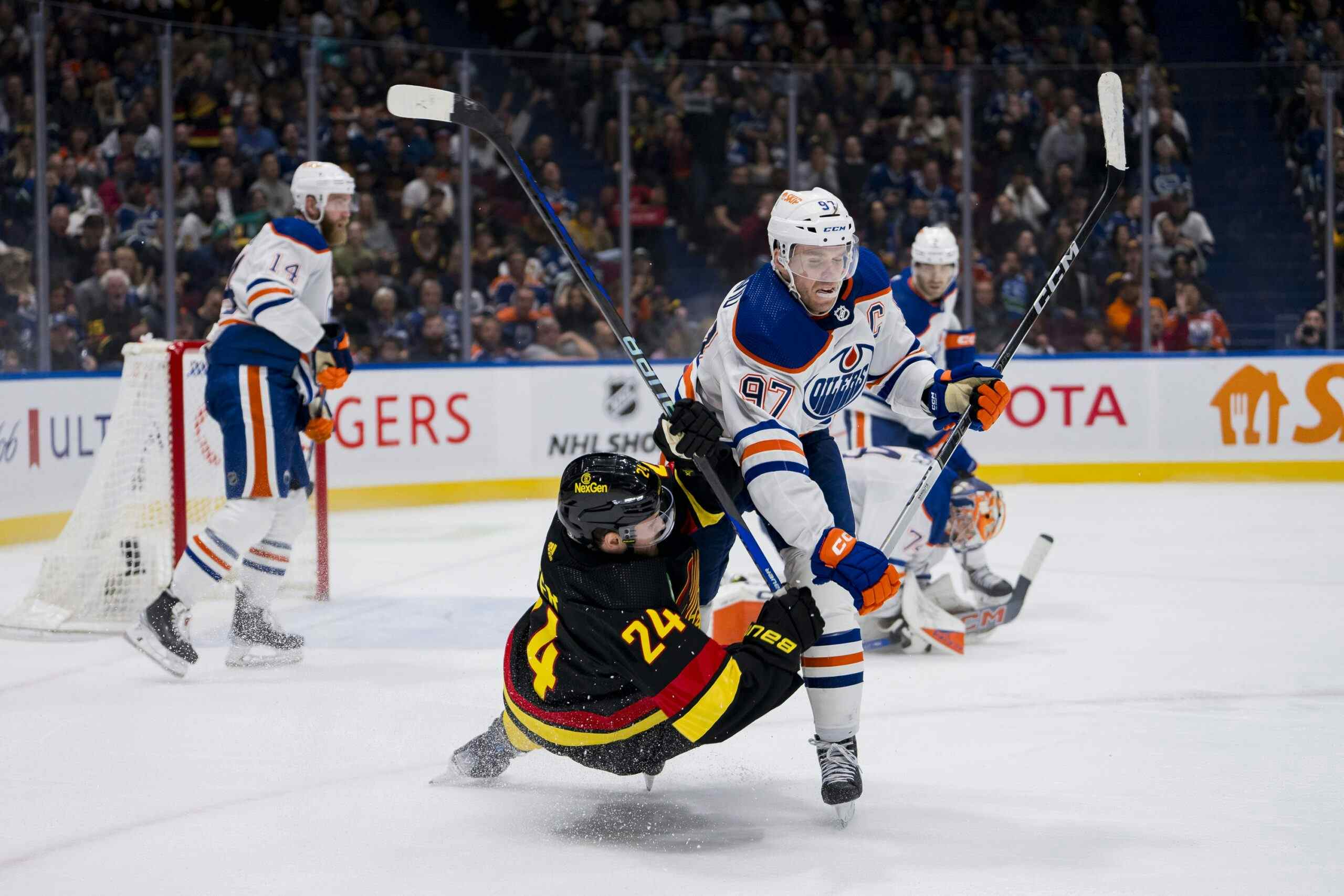The Ryan Nugent-Hopkins Conundrum

By Cam Lewis
4 years agoWhen you think about the Oilers’ long-term core, three obvious names come to mind. There’s @Connor McDavid, @Leon Draisaitl, and @Oscar Klefbom, all of whom are locked up to contracts for the foreseeable future. With a great season last year and a strong start this year, @Darnell Nurse is also working his way to being a mainstay in that group, turning it into a core four.
But then there’s @Ryan Nugent-Hopkins. It feels like he’s been around forever. Drafted first overall in 2011, Nugent-Hopkins made his debut on a shallow Oilers squad as an 18-year-old and has been to hell and back with this organization ever since. He’s survived the Steve Tambellini era, the Craig MacTavish era, the Peter Chiarelli era, and now he’s into the Ken Holland era. He’s been coached by Tom Renney, Ralph Kreuger, Dallas Eakins, Todd Nelson, MacTavish, Todd McLellan, Ken Hitchcock, and now Dave Tippett.
It’s difficult to imagine an Edmonton Oilers team without Nugent-Hopkins at this point. But just a year-and-a-half away from being able to hit unrestricted free agency for the first time in his career, can we consider Nugent-Hopkins part of the team’s long-term core moving forward?
After just 102 games in the NHL, the Oilers were happy enough with what they had seen from Nugent-Hopkins that they gave him a seven-year contract extension worth $42 million. He followed that new deal up with back-to-back 56-point seasons, then took a step back offensively over the next three seasons, failing to reach the 50-point plateau due to injuries and a decreased role. Last season, though, Nugent-Hopkins had the most productive year of his career, posting 28 goals and 69 points, a career-high in both categories.
The long-term deal the Oilers gave Nugent-Hopkins after just a couple of seasons was a risk that worked out for the club. Though he hasn’t produced world-beating numbers, he’s been a steady player for the team, consistently playing a smart, responsible two-way game. But with that July 2021 free agency looming, there’s a decision to be made with Nugent-Hopkins. It isn’t imminent, but it’s something that’s surely on Ken Holland’s mind. Will he get another long-term deal with the Oilers?
Nugent-Hopkins will be eligible for a contract extension in July. If the team doesn’t ink him to a deal this off-season, we’ll likely start hearing his name mentioned in trade talks as the organization won’t risk letting him walk in 2021 for nothing.
In the past, we’ve seen plenty of teams deal high-quality forwards in their mid-20s when there wasn’t a long-term extension in place. Here are three major examples with varying degrees of objectives and success.
- The Bruins traded @Milan Lucic to Los Angeles for Martin Jones, Colin Miller, and a first-round pick when he had one year left before free agency because they were skeptical of giving him a long-term deal. That was clearly the right decision as Lucic’s game didn’t age well.
- The Blackhawks traded @Artemi Panarin to Columbus for Brandon Saad when he still had two years left on his deal. This deal didn’t work out for the Hawks. They got a cost-controlled player in Saad, which helped their cap, but ended up losing one of the best players in the league. Though Panarin would have likely left Chicago as he did Columbus, the Hawks might have been a better team the last two seasons with him.
- The Senators dealt @Matt Duchene to Ottawa in a three-way trade a year-and-a-half before he could hit the open market. This was an infamously bad deal for the Sens as they imploded and ended up giving Colorado the fourth-overall pick in 2019. Selling a year-and-a-half of Duchene was key to Colorado’s rebuild.
This is the reality of the salary cap world. Teams have to be incredibly conservative with asset management. If a player is a year away from free agency and extension talks aren’t headed in the right direction or the possibility for a new deal isn’t realistic, the focus moves to trading the player to recoup value elsewhere. It isn’t just rebuilding teams like Colorado that make these sorts of deals. Boston was coming off a 96-point season when they dealt Lucic and Chicago was coming off a 109-point season when they traded Panarin.
A lot can happen in the next year-and-a-half, but, based on deals handed out this summer, we can start to get an idea of what his next deal will look like. Unless he takes a team-friendly discount, Nugent-Hopkins is certain to get a bump on his current $6,000,000 annual deal. For the sake of comparison, Kevin Hayes, coming off of a career-high 55-point season, inked a seven-year deal worth $7.14 million annually. Hayes had never cracked the 50-point plateau coming into the 2018-19 season and had scored more than 20 goals just once. The seven-year deal worth $8,000,000 Matt Duchene signed this summer is likely what Nugent-Hopkins will be looking at in free agency.
When Nugent-Hopkins’ next contract begins, which would be the 2021-22 season, he’ll be 28 years old. A seven- or eight-year deal would take him into his mid-30s. An $8 million cap hit would mean that him, McDavid, and Draisaitl would be making nearly $30 million combined. It’s standard these days for a team’s Big Three forwards to make that kind of cash, but the question becomes whether or not Nugent-Hopkins is the guy to pay to be in that Big Three.
Again, it isn’t something pressing, it’s just something to start thinking about. There’s really no easy answer here. Nugent-Hopkins is an excellent player and the Oilers are better with him than they are without him. But he’s also going to be expensive to keep around. If the Oilers give him a new deal, it’ll be a major commitment, one that’ll make it difficult to sign a big-name player in free agency.
As we saw with other teams who deal away key forwards prior to their free-agent seasons, the Oilers could likely recoup a lot of assets in a Nugent-Hopkins trade if they decided to do it before the start of the 2020-21 season. But if the team continues to be competitive as they are right now, how do you justify giving up a major contributor in the short-term in order to recoup assets for the long-term? That probably isn’t the best way to keep Connor McDavid happy.
I think the 2019-20 season could serve as an audition for Edmonton’s longest-tenured player. Ken Holland will have to make a decision sooner rather than later whether or not Nugent-Hopkins will be a key part of the team moving forward.
Recent articles from Cam Lewis





